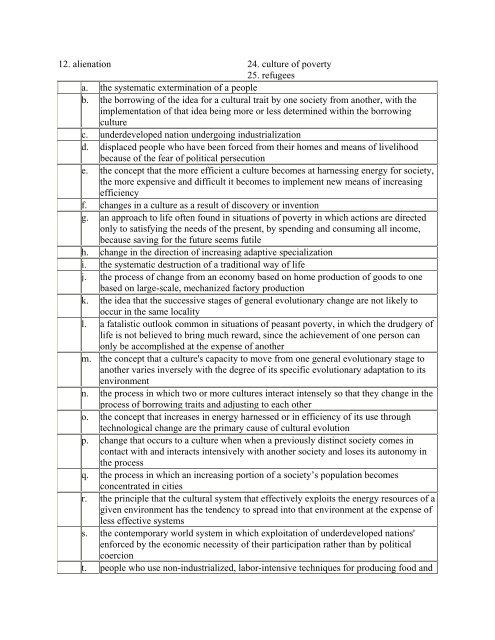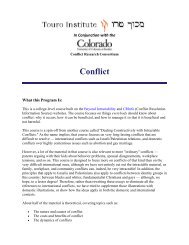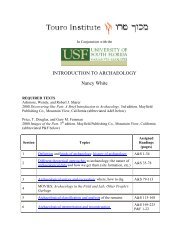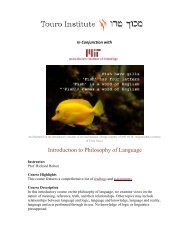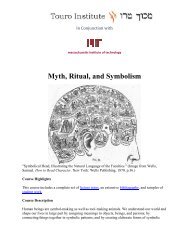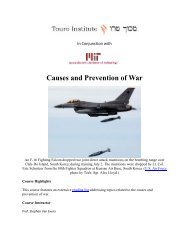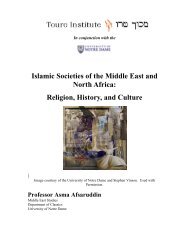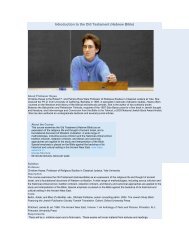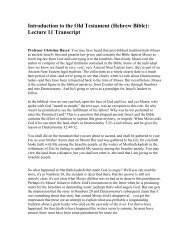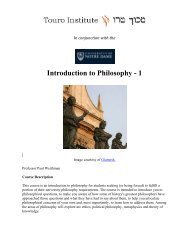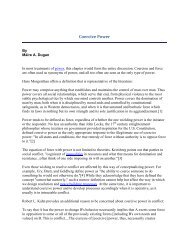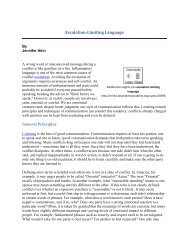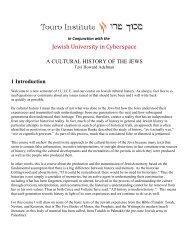In Conjunction with Cultural Anthropology - Touro Institute
In Conjunction with Cultural Anthropology - Touro Institute
In Conjunction with Cultural Anthropology - Touro Institute
You also want an ePaper? Increase the reach of your titles
YUMPU automatically turns print PDFs into web optimized ePapers that Google loves.
12. alienation 24. culture of poverty<br />
25. refugees<br />
a. the systematic extermination of a people<br />
b. the borrowing of the idea for a cultural trait by one society from another, <strong>with</strong> the<br />
implementation of that idea being more or less determined <strong>with</strong>in the borrowing<br />
culture<br />
c. underdeveloped nation undergoing industrialization<br />
d. displaced people who have been forced from their homes and means of livelihood<br />
because of the fear of political persecution<br />
e. the concept that the more efficient a culture becomes at harnessing energy for society,<br />
the more expensive and difficult it becomes to implement new means of increasing<br />
efficiency<br />
f. changes in a culture as a result of discovery or invention<br />
g. an approach to life often found in situations of poverty in which actions are directed<br />
only to satisfying the needs of the present, by spending and consuming all income,<br />
because saving for the future seems futile<br />
h. change in the direction of increasing adaptive specialization<br />
i. the systematic destruction of a traditional way of life<br />
j. the process of change from an economy based on home production of goods to one<br />
based on large-scale, mechanized factory production<br />
k. the idea that the successive stages of general evolutionary change are not likely to<br />
occur in the same locality<br />
l. a fatalistic outlook common in situations of peasant poverty, in which the drudgery of<br />
life is not believed to bring much reward, since the achievement of one person can<br />
only be accomplished at the expense of another<br />
m. the concept that a culture's capacity to move from one general evolutionary stage to<br />
another varies inversely <strong>with</strong> the degree of its specific evolutionary adaptation to its<br />
environment<br />
n. the process in which two or more cultures interact intensely so that they change in the<br />
process of borrowing traits and adjusting to each other<br />
o. the concept that increases in energy harnessed or in efficiency of its use through<br />
technological change are the primary cause of cultural evolution<br />
p. change that occurs to a culture when when a previously distinct society comes in<br />
contact <strong>with</strong> and interacts intensively <strong>with</strong> another society and loses its autonomy in<br />
the process<br />
q. the process in which an increasing portion of a society’s population becomes<br />
concentrated in cities<br />
r. the principle that the cultural system that effectively exploits the energy resources of a<br />
given environment has the tendency to spread into that environment at the expense of<br />
less effective systems<br />
s. the contemporary world system in which exploitation of underdeveloped nations'<br />
enforced by the economic necessity of their participation rather than by political<br />
coercion<br />
t. people who use non-industrialized, labor-intensive techniques for producing food and


